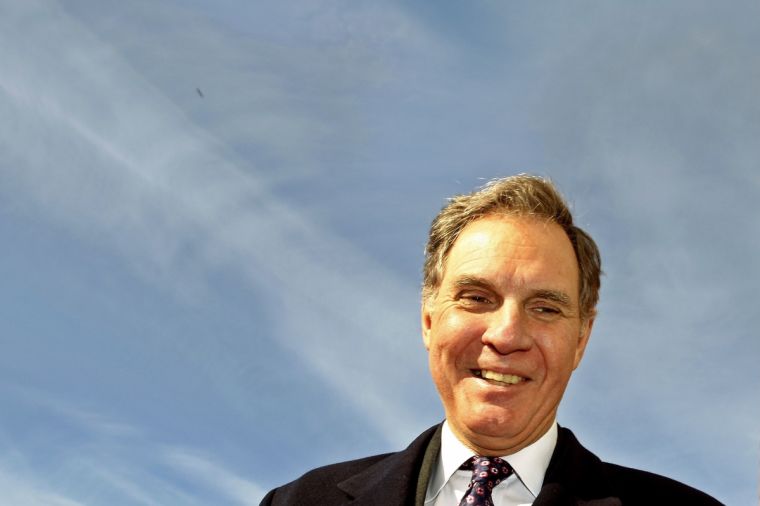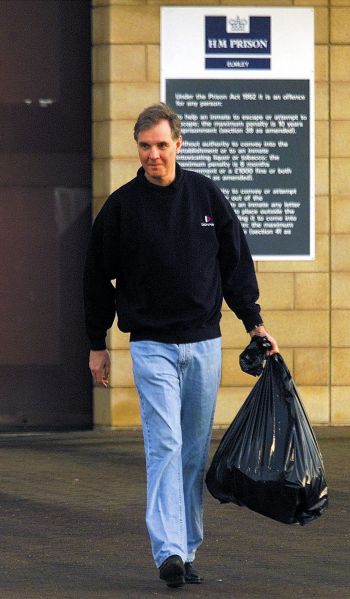Prisons Guilty Of 'Institutional Secularism': Christian Convert Jonathan Aitken, Ex-Cabinet Minister And Convict

Jonathan Aitken, the former Conservative Cabinent minister who served time in jail for perjury, has accused the prison service of being guilty of 'institutional secularism'.
He was speaking to Christian Today after Justice Secretary Liz Truss effectively admitted in a speech at the Centre for Social Justice that the prison system is in crisis.
She admitted the prison population had changed but said this was due to the increase in numbers of violent and sex offenders being convicted. She slapped down calls for reduced sentences and said the answer was instead to place more emphasis on reform.

Aitken, who was convicted of perjury in 1999 and served seven months of his 18-month sentence, and who is currently president of Christian Solidarity Worldwide, said there is a 'growing role' for charities, including Christian charities, in prison and prisoner reform.
He referred to Christian organisations such as the Prison Fellowship, which has 3,200 volunteers working in 120 prisons; Caring for Ex-Offenders, a charity based at the evangelical London church Holy Trinity Brompton, Pact, which works with prisoners' families and the Nehemiah Project, which takes an abstinence-based approach to addiction.
Aitken, who became Christian after he attended the Alpha Course in 1997 and learned Greek and studied theology at Wycliffe Hall, Oxford after his conviction, said: 'There is a long list of good and effective Christian-inspired charities which do not need money from government but do need more encouragement and fewer obstacles.'
He said this meant 'easier access' to do their prison ministry.
The obstacles to Christian ministry and Christianity in general vary from prison to prison.
'But at its worst, there is a political correctness in the system,' he said. 'Christians are seen as a nuisance who deserve no special treatment. Indeed, they often seem to get slightly worse treatment in terms of bureaucracy and rights of access.
'So there is a certain insitutional secularism in the prison system which often leads to a bias against Christian ministry and Christian volunteers.'
He admitted: 'That is a very sweeping thing to say.' It was not true of all prisons, he added, but it was 'true in enough places to be a problem'. The variation was due to the wide differences between prisons in the system.
Aitken often gives testinomy in churches and prisons. His role model and mentor until he died in 2012 was President Nixon's former political henchman, Chuck Colson, one of the 'Watergate Seven' who also went to prison, converted and became an evangelist for both for Christianity and for prison reform.
Last year, Aitken was a keynote speaker at the National Prayer Breakfasts of Canada and Uganda.
When preparing for talks, Aitken said he often sits down first and tries to imagine what Colson would have said.
He also led a prison reform task force on prison reform for the Centre for Social Justice and wrote a biography of Colson, Charles W Colson: A Life Redeemed.
Aitken praised Truss for her 'realism' and her caution. Letting violent and sex offenders out early in order to solve the overcrowding problem should not be on the government's agenda at all, he said.
However, said she was a little over-cautious in what might be done in the area of rehabilitation. 'There are perhaps more signs of hope in this field than she acknowledged,' he said. But she was right to emphasise the value of prison officers.
He condemned staff cuts in prisons.
'Liz Truss's predecessors have brought on the present crisis in our prisons by kow-towing to the pressures from the Treasury and taking 7,000 prison officers out of the system. That destroyed a lot of good prison officer services. The loss of these jobs is really the root cause of the present crisis, with too many suicides, too much self-harm, too many attacks on staff. Most of this would not be happening if those 7,000 officers had not been removed.'











